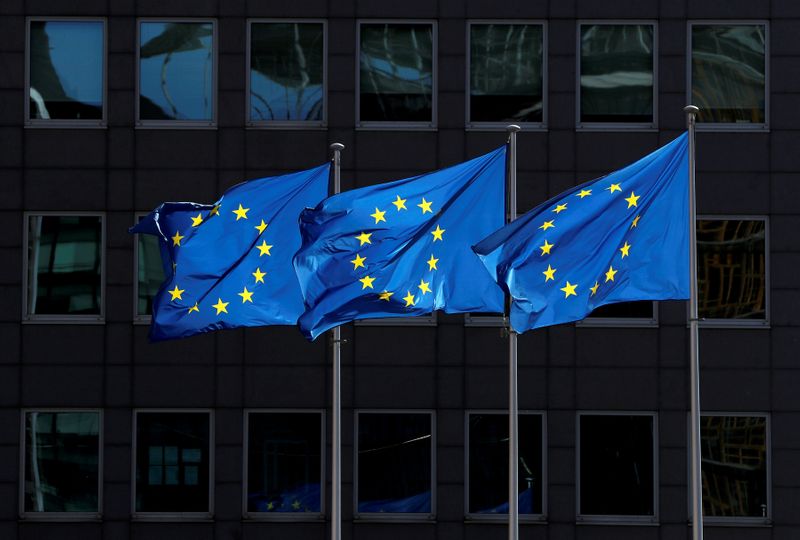By Yoruk Bahceli
AMSTERDAM (Reuters) - Euro zone bond yields showed little reaction to Hungary and Poland's veto of the EU's budget and recovery fund in early Tuesday trade, while Italy was expected to sell a U.S. dollar bond.
Hungary and Poland blocked the adoption of the EU's 2021-2027 budget and recovery fund - a key factor that has helped push down government bond yields in Southern (NYSE:SO) European countries led by Italy - on Monday, over a clause that ties funds to respecting the rule of law.
The veto, which threatens to delay the disbursement of the recovery fund, will be discussed at a meeting of European affairs ministers on Tuesday, then at a video-conference of EU leaders on Thursday.
Expectations of the veto had little market impact, although some analysts thought it might have capped the reaction to news on Monday from U.S. drugmaker Moderna, which became the second U.S. drugmaker after Pfizer (NYSE:PFE) last week to report results of its experimental vaccine being more effective than expected in preventing COVID-19.
Euro zone bonds, which sold off moderately and then recouped losses later on Monday, were steady in early Tuesday trade, with Germany's 10-year benchmark yield at -0.55% (DE10YT=RR) and Italy's 10-year yield at 0.61%. (IT10YT=RR)
The closely watched gap between Italian and German 10-year yields -- effectively the risk premium on debt from Italy, one of the main beneficiaries of the recovery fund - was near its lowest since early 2018 at around 115 basis points.
The lack of market reactions "tend to reflect the market's view that the EU will find a way to hammer out a compromise that keeps all parties roughly happy," said Andy Cossor, a strategist at DZ Bank.
Attention was also on issuance on Tuesday, with Italy expected to price a five-year U.S. dollar bond via a syndicate of banks after launching the sale on Monday.
Italy last issued a U.S. dollar bonds in October 2019, when it raised $7 billion from five, 10 and 30-year bonds in the first such issuance since 2010.
Commerzbank (DE:CBKG) analysts expect Italy to raise $2.5 billion this time around.
Germany will also visit the primary market, to auction a new two-year bond.

In the money markets, ESTR, an overnight borrowing rate compiled by the ECB, continued to dip, Tuesday's reading of -0.558% based on Monday activity showed, reversing a sharp rise in Friday's reading that had pushed it to its highest since July.
